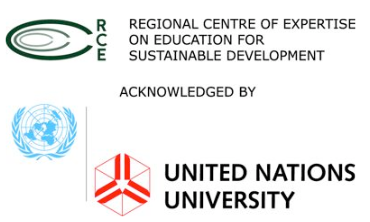
RCE Bulletin
Dear Colleagues and Friends,
Greetings from the Global RCE Service Centre! We hope you are all continuing to stay safe and healthy. It has been encouraging to see and hear from many RCEs in various online events in recent months, and we look forward to coming together again very soon for the upcoming Regional RCE Meetings taking place over the next few months. Please see below for details of calls for participation and registration for each event.
As we move towards ESD for 2030, UNESCO is planning a series of webinars on the key reflections from the COVID-19 crisis and on the way forward with the new ESD for 2030 framework, in the lead up to the UNESCO World Conference on ESD to be held in Berlin next year. The first webinar kicks off in September 2020 - please see below for further details.
If your RCE would like to share any news, upcoming events, open calls, or publications for an upcoming bulletin, we would love to hear from you! Please complete this form and email your submission to the Global RCE Service Centre at rceservicecentre@unu.edu (submissions close on the 15th of each month).
Sincerely,
The Global RCE Service Centre
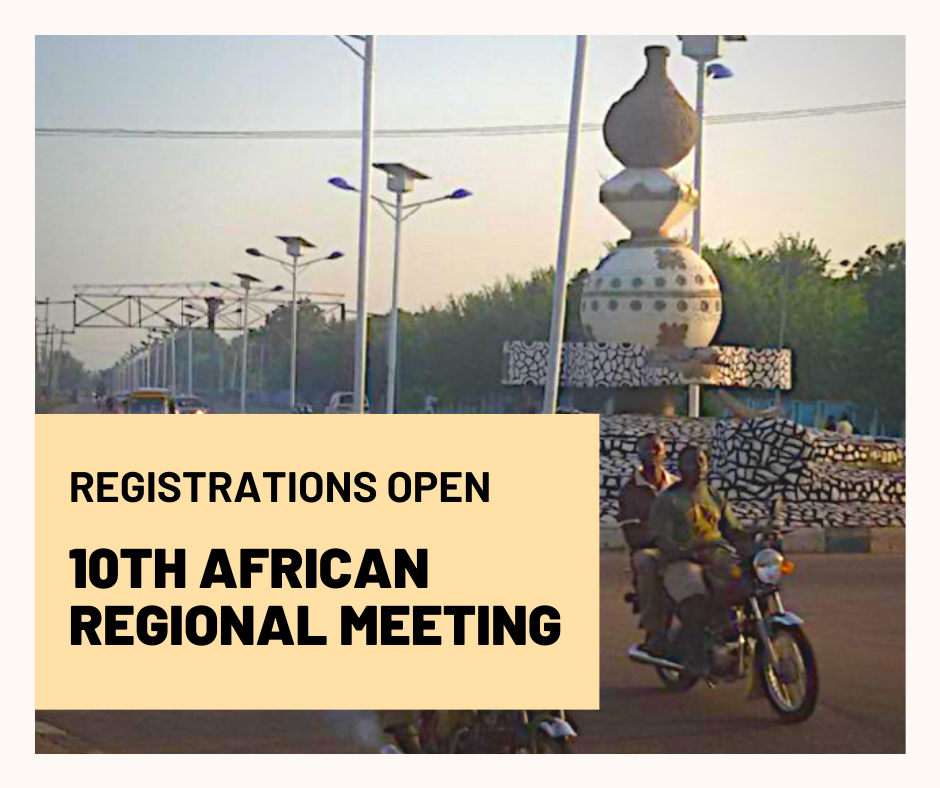
(Photo credit: RCE Minna)
Hosted by RCE Minna, the 10th African RCE Regional Meeting will be held online, on 1 September, 2020 (Stream One) and 15 September, 2020 (Stream Two) under the theme 'Community-Based Resilience during Pandemic Disruption: The Role of African RCEs'.
The meeting will include keynote speeches and case study presentations of activities/actions by RCEs towards containing and preventing COVID-19 or its impacts. The major sub-themes include:
i. Environment and climate change perspectives of COVID-19; lessons for ESD
ii. Preparing for the next pandemic; need for effective early warning system
iii. The value of Traditional knowledge in pandemic management
Deadlines:
- Tuesday, 25 August, 2020: Registration for Stream One
- Thursday, 3 September, 2020: Submission of the final paper to present during Stream Two
- Tuesday, 8 September, 2020: Registration for Stream Two
Full details on the meeting and how to register can be found here.
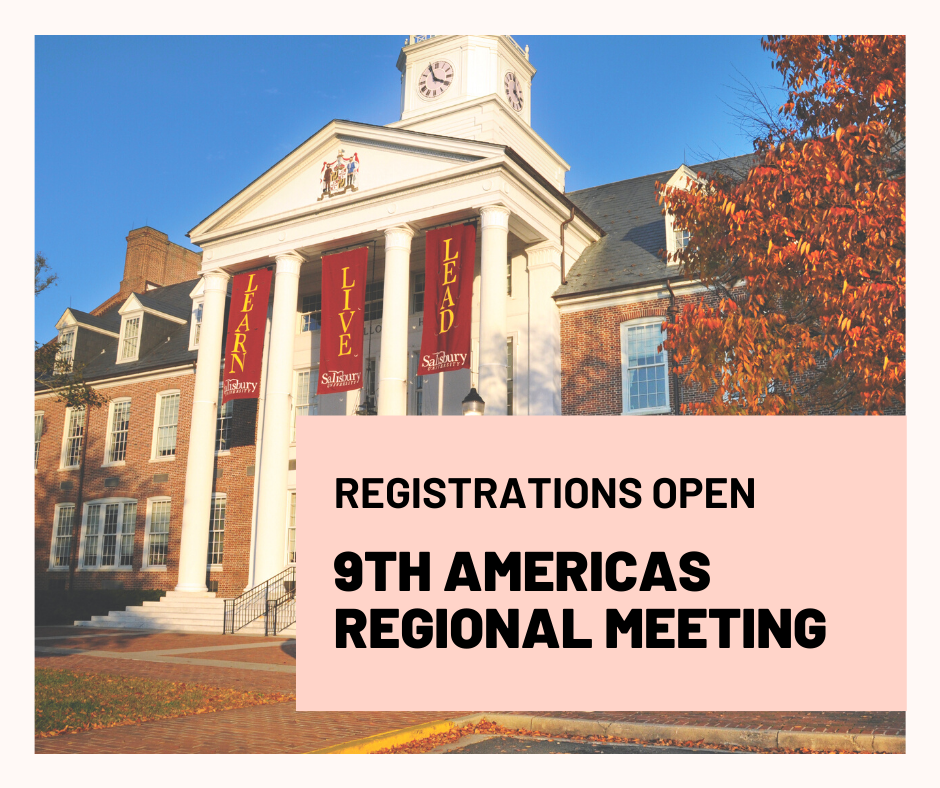
(Photo credit: Salisbury University)
Hosted by RCE Salisbury, the 9th Americas RCE Regional Meeting will be held online, on 13 October and 14 October, 2020 under the theme 'The Future is Now - Sustainable Development'. An in-person meeting will also be held in Salisbury, Maryland, USA in 2021 (dates TBA).
Registrations are currently open for the online sessions for this year, and will close on 28 September, 2020. Further details of the meeting including the programme and how to register are available here.
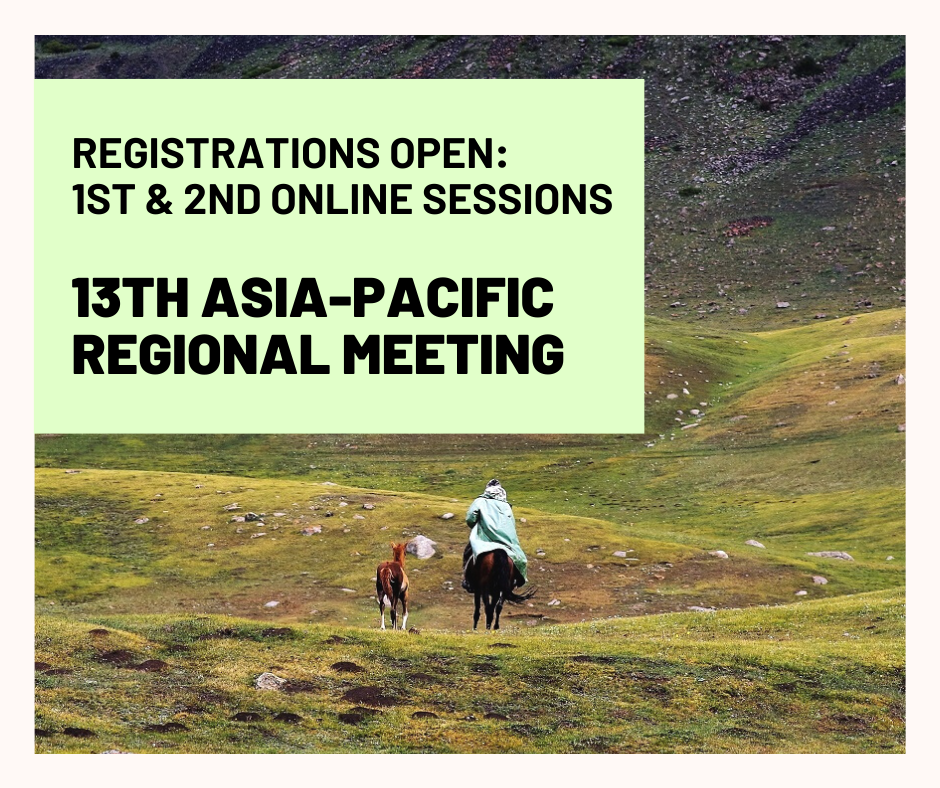
(Photo credit: Elena Kreuzberg)
Hosted by RCE Kyrgyzstan, the 13th Asia-Pacific Regional Meeting will consist of two parts under the theme of 'Building Capacity for Sustainability'. The first part will be divided into four online sessions starting on 10 September followed by sessions on 24 September, 8 October, and 22 October, 2020. The second part of this regional meeting will be held in-person in Bishkek, Kyrgyz Republic in 2021 (dates TBA). The online sessions will kick-start the meeting, before gathering in person next year.
Registrations for the 1st online session are still open, until 3 September, 2020. Registrations for the 2nd online session are also currently open, and will close on 17 September, 2020. Full details and the registration forms are available here.
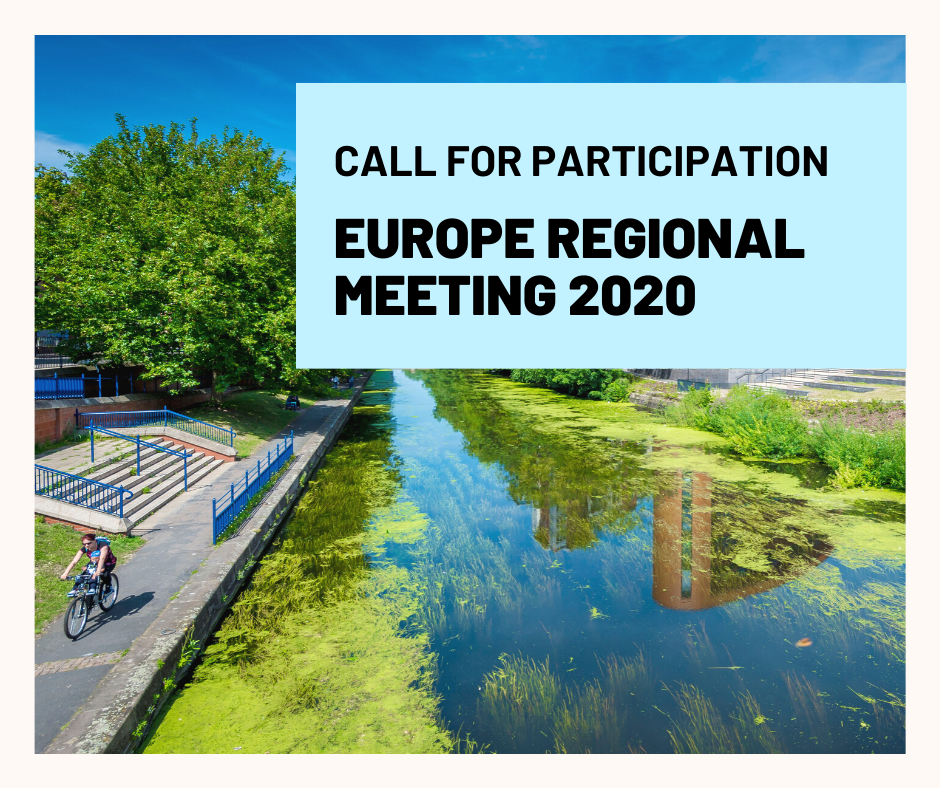
(Photo credit: De Montfort University)
The Europe Regional RCE Meeting 2020 taking place from 24-25 November, 2020, aims to bring together members of European RCEs, and anyone with an interest in collaborative local action and learning for sustainability.
Hosted by RCE East Midlands under the theme 'Climate Emergency: Joined-up Action', the call is currently open for participants to join and contribute to the programme. Day one is open to all, and day two open to current and prospective RCE members.
Each European RCE is encouraged to participate in a range of engaging formats, particularly on day two which focuses upon updates and discussion across the existing RCE Europe network. In addition, contributions are sought on the conference theme, on recent RCE projects and of relevant issues for the work of RCEs. Any short talks will be pre-recorded, leaving space during the conference for discussion on talks or interactive online workshops.
Offers of participation are sought by 4 September, 2020 (extended). Full details and the submission form are available here.
Upcoming Events
Join UNESCO for a global series of online workshops on how to transform society through learning with ESD, launching in September 2020. The COVID-19 pandemic has had a tragic impact on human life around the world: killing hundreds of thousands of people, causing global economic decline and school closures in over 180 countries. It has challenged the structures of our societies and our ways of life. This disruption also presents a historic chance to redesign our societies and reroute from the current path.
In the lead-up to the UNESCO World Conference on ESD in May 2021, UNESCO invite you to a series of ESD online workshops in cooperation with the Federal Ministry of Education and Research of Germany, and with the German Commission for UNESCO as advisory partner. The discussions and results from the series of online workshops will be used to further develop the conference program and help shape the agenda in Berlin next year. The first of seven workshops, 'The Big Conversation: Education for Sustainable Development and the World Beyond Covid-19' will be held on 9 September, 2020 (12:30pm GMT+2). View the event page for more information on the workshop series.
RCE Srinagar, guided by the Asia-Pacific RCEs Coordinating Committee, will organise three webinars for the remaining period of 2020. These webinars will mark the occasions of:
- 'Green Consumer Day' focusing on Sustainable Consumption and Production (28 September, 2020);
- 'International Day for Disaster Reduction' (13 October 2020); and
- 'International Mountain Day' 2020 (11 December 2020).
The first of these webinars, on 28 October, 2020 celebrates 'Green Consumer Day' 2020 and will be co-hosted by RCE East Kalimantan, Universitas Jember, RCE East Java (candidate) and RCE Srinagar. RCEs of the Asia-Pacific region are invited to participate in in the webinar, with youth representation encouraged.
Participation in the webinar will help participants understand increasing trends of consumerism threatening sustainability, how to make the right choices when it comes to reducing consumption, reducing footprints, becoming a responsible consumer, and promoting sustainability.
RCEs interested in presenting are requested to email RCE Srinagar (rcesrinagar@gmail.com) by 4 September, 2020, and send their presentation through to RCE Srinagar by 21 September, 2020. Slots will be reserved only after receiving presentations, and will be allocated on a first-come, first-served basis. Submitted PPTs should be almost complete, however presenters can make further changes, with final versions to be submitted by 26 September, 2020.
Further details, including the link to join are available here. Details of the second and third webinars will be announced in due course.
UNU-IAS is establishing a new academic platform to enhance cooperation between Japanese universities for the Sustainable Development Goals (SDGs). The SDG - Universities Platform (SDG-UP) will increase Japanese universities' presence in international academic communities and contribute towards achieving the SDGs both locally and internationally.
To launch the platform, UNU-IAS will organise an online symposium on 28 August 2020, with the support of the Ministry of Education, Culture, Sports, Science and Technology of Japan (MEXT). The event will be organised in cooperation with Toyo Keizai Inc. and Wave LTD GROUP. With panellists from the private sector, local government and academia, it will focus on enhancing collaboration between Japanese universities and strengthening partnerships with other stakeholders.
Registration is free and open to all. Further details and the programme are available here.
Open Calls
Latest News
The UN Secretary-General has launched a policy brief on 'Education during COVID-19 and Beyond', which includes input from 14 organisations, providing top-level advocacy for education. It stresses that urgent action must be taken by all in order to mitigate the potentially devastating consequences of the COVID-19 pandemic. The document gives recommendations for governments and stakeholders, emphasising the need for bold steps now to create inclusive, quality education systems fit for the future. Read more or download the policy brief.
In November 2019, the 40th session of UNESCO General Conference adopted a new global framework on ESD called 'Education for Sustainable Development: Towards achieving the SDGs' or 'ESD for 2030'. The new framework will be officially launched at the UNESCO World Conference on Education for Sustainable Development in Berlin, postponed to 17-19 May, 2021.
UNESCO will shortly publish A Roadmap for ESD for 2030 which will be discussed at regional online launch events to take place during the second half of 2020, to engage Member States and other stakeholders and invite country commitments on ESD. UNESCO is planning a series of webinars on the key reflections from the COVID-19 crisis and on the way forward with the new ESD for 2030 framework. These will start in September 2020 until April 2021, as a lead up to the World Conference in Berlin in May (see details above under 'Upcoming Events'). Read more
The secretariat of the United Nations Framework Convention on Climate Change (UNFCCC), in collaboration with UNESCO, recently launched the 8th Dialogue on Action for Climate Empowerment - a round of discussions that will feed into COP 26, the next major conference of the parties to the Convention scheduled for 2021. Read more

(Photo credit: RCE Hangzhou)
RCE Hangzhou recently organised an experiential learning activity in which junior-high and high-school-age 'River Angels' engaged in a public interest lawsuit in a mock environmental court.
RCE Hangzhou's River Angels program was established in 2018 and aims to improve the environmental awareness of the province's youth, give them opportunities to engage in hands-on interactive learning, and, ultimately, to enlist them in the fight to protect the province's water resources. As part of the mock environmental court experience, the River Angels learned about environmental laws through a two-month series of interactive modules, including a visit to the Zhejiang Academy of Environmental Sciences where, among other things, they learned how to calculate the monetary costs of environmental damage.
In the final mock court exercise, River Angels played various roles, including the judge, lawyers, and defendant. Through court investigations, evidence analysis, cross-examination, court debates, and other procedures, they became familiar with the process of a court trial and improved their ability to solve environmental problems. Read more
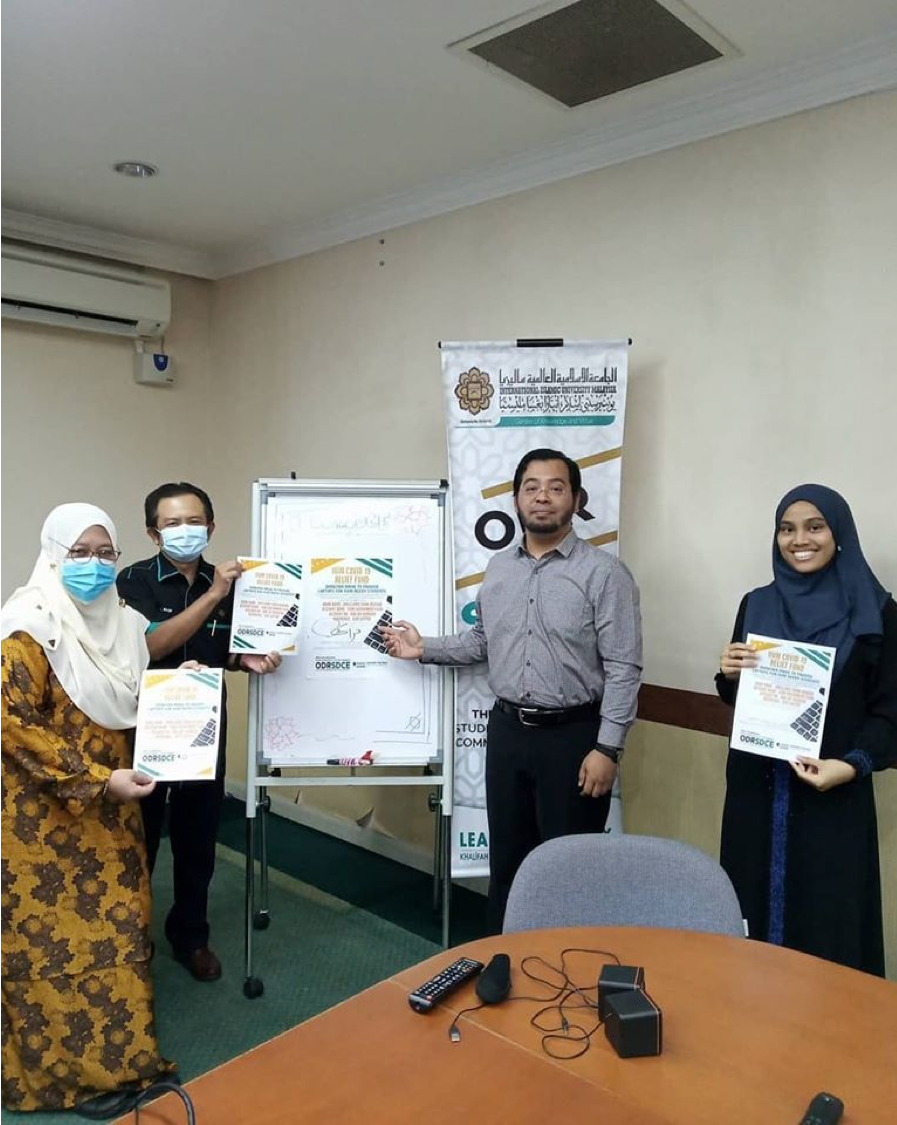
(Photo: Fundraising for laptops. Credit: RCE Greater Gombak)
This year's International Youth Day theme put a spotlight on youth engagement. In celebration, RCE Greater Western Sydney and RCE Srinagar co-hosted a webinar 'Youth and Sustainability in a COVID Era', which was attended by over 100 participants across the Asia-Pacific, including 37 RCEs within the region.
The presentations strongly highlighted RCEs' efforts in supporting ESD, growing partnerships and addressing the SDGs. It also showed how RCEs are working to build young people's capabilities, particularly women and Indigenous communities, by sharing knowledge and supporting practical and engaging activities, from improving livelihoods to action on climate change. Read more
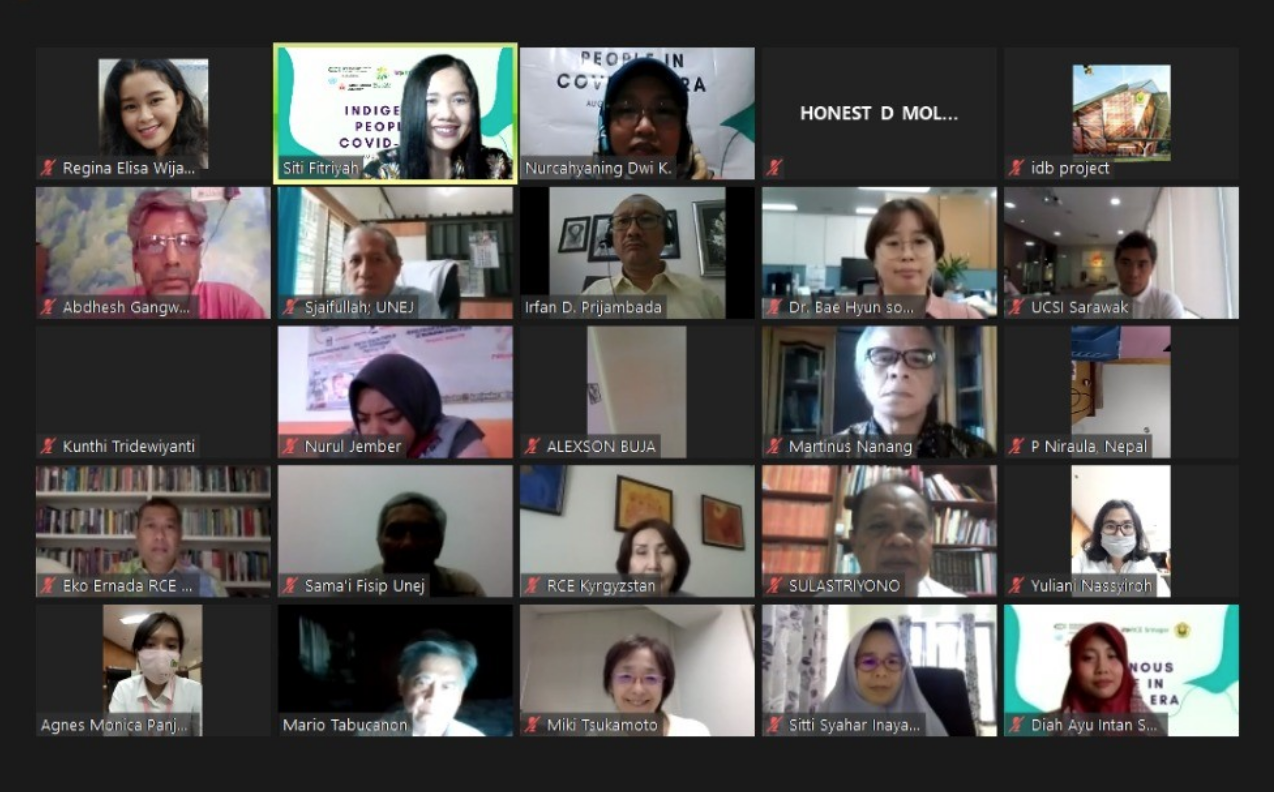
(Photo credit: RCE East Kalimantan)
RCE East Kalimantan and RCE Srinagar co-hosted a webinar titled 'Indigenous People in COVID Era' celebrating 'International Day of the World's Indigenous Peoples' on 10 August 2020. Over 200 participants, including 37 RCEs within the Asia-Pacific Region, attended the webinar. As a region that is inhabited by many Indigenous peoples, the webinar threw light on how Indigenous people in the Asia-Pacific have been coping with the pandemic utilising their local wisdom. Participants were able to exchange ideas and experiences regarding the handling of COVID-19 in their country, especially with respect to Indigenous peoples. Read more
The Wales School for Social Prescribing Research (WSSPR) is a virtual all-Wales school, which aims to build a world-leading critical evidence base for social prescribing in Wales, using a translational research model to ensure findings have high-impact in academia, practice, policy and education.
Launched in April 2020, WSSPR are funded by Health and Care Research Wales to develop a social prescribing evaluation methodology. Alongside this, other funded research includes social value, evaluation, education and well-being. Capacity building is key to WSSPR, with strong engagement from the Welsh Communities of Practice and a portfolio of PhD & MRes students. WSSPR builds upon work previously completed by the Wales Social Prescribing Research Network (WSPRN) and now sits within PRIME Centre Wales.
Visit their website to learn more, including current projects and their research network, or get in touch via email (wsspr@southwales.ac.uk).
ESD BOOKS, PUBLICATIONS AND OTHER
UNESCO has launched the Global Skills Academy offering free and high-quality online trainings from members of the Global Education Coalition. Under the project 'Skills for a Resilient Youth in the Era of COVID-19 and Beyond', the Academy aims to equip one million young persons with employability and resilience skills to help them find jobs during the looming recession due to COVID-19. The Academy will operate through a matching process facilitated by UNEVOC, UNESCO's global network for institutions specialised in Technical and Vocational Education and Training. Detailed information about available trainings will be shared with the 250 UNEVOC Centres in more than 160 Member States. The Centres will identify interested participants and connect them to the Coalition members' training platforms. Visit the website or read the press release.
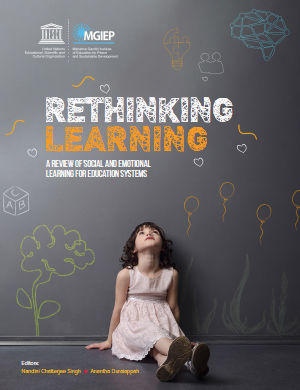
Published by the UNESCO Mahatma Gandhi Institute of Education for Peace and Sustainable Development (MGIEP), this report reviews the latest research on Social and Emotional Learning (SEL), its impact on student health and school climate and its transformative role in building happier classrooms. It provides guidance to teachers, policymakers, parents and learners on what constitutes key characteristics of a 'good' SEL framework. The publication stresses the urgent need to mainstream SEL in education systems in order to shape a future that embraces and facilitates improved academic success as well as peace and human flourishing. Read more
Published in the journal Modern Economy, this paper (by lead author Sir Anthony Wakwe Lawrence of RCE Greater Yenagoa), evaluated critical factors that have contributed to major challenges that can hinder Nigeria from achieving SDG 4. These include poor funding, poor school enrolment/out-of-school children, and poor school infrastructure, and was evaluated using fishbone and problem tree analysis, as well as an applied qualitative descriptive assessment of the seven SDG 4 targets and the three enabling targets. Funding was identified as the key issue, which is also an underlying factor militating against the achievement of many other challenges. The other key challenge of poor school enrolment cannot be resolved with persisting insecurity and Almajiri problems in the northern parts of Nigeria. Without concerted efforts to increase the budget for education and ensuring that allocated funds are not misappropriated, it will not be possible to achieve SDG 4. Read more


